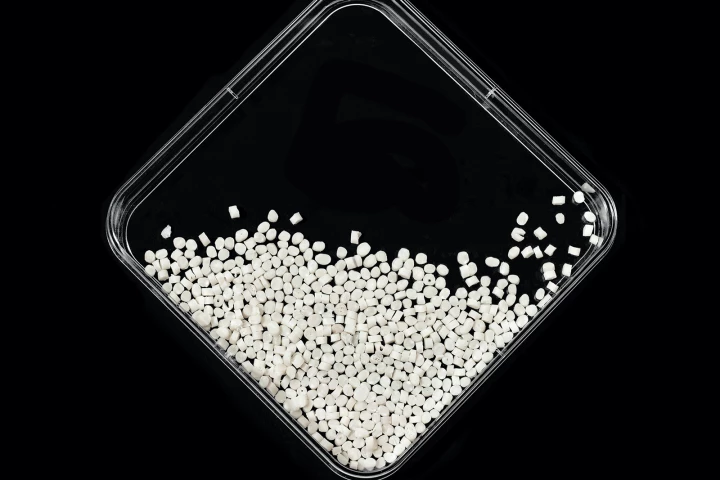The battle against plastic pollution is one being fought on many fronts, but a particularly critical one centers on the material's capacity to persist in the environment for a long time, even centuries in some cases. By tweaking the process by which plastic is made, scientists hope to offer functional forms of it that safely and naturally degrade in just a fraction of the time. And recent breakthroughs suggest such a future mightn't be all that far away.
It is the same durability and dependability that make plastic such an invaluable material, for everything from safely packaging important medicines to forming the body of our toothbrushes that keep our mouths clean, that also make it such a prickly environmental problem.
Most common plastics are made from a chemical derived from petroleum that is treated to form incredibly strong carbon bonds between individual monomers, which join together into long chains to form a polymer called polypropylene. This is something that doesn't occur naturally in nature, so nature, naturally, has a very difficult time taking it apart again.
While a great deal of scientific research into plastics focuses on novel recycling methods that can more effectively break these chains apart and allow the material to be re-used, some seek the need for recycling all together. These include plastic materials made with the help of natural materials, and some that even have a few neat tricks up their sleeves like embedded enzymes that help break them down once they've served their purpose.
Here is a look at some significant and highly promising breakthroughs to take place in this area of late.
-
March 25, 2021 | Nick LavarsResearchers at Yale University have developed a bioplastic made using wood byproducts. The material boasts high strength and durability, but also has the ability to degrade completely in the space of just three months.
-
October 07, 2020 | Ben CoxworthTwo of the problems with traditional plastics are the facts that they're made from non-renewable petroleum, and they stick around for centuries once discarded. A new alternative, however, is made from existing waste, and should biodegrade in a year.
-
April 21, 2021 | Michael IrvingMost plastics don’t break down easily – and when they do, they create problematic microplastic particles. A new type of compostable plastic is embedded with enzymes that, when triggered, quickly break the material down to its constituent molecules.
-
June 28, 2020 | Nick LavarsIn an effort to tackle to growing problem of plastic pollution, NEC Corp has today made commercially available a bioplastic made with plant ingredients that breaks down in the environment in around four years.
-
July 11, 2021 | Nick LavarsResearchers in China have demonstrated a new form of plastic that degrades in just a week when exposed to sunlight and oxygen, which they believe could make for electronics that are easier to dispose of at the end of their lives.









